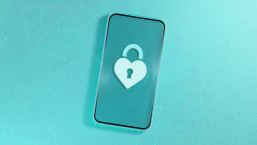Young people are seriously worried about the internet of things when it comes to privacy - concerned that 'connected' gadgets such as Smart TVs could give away more data than they are comfortable with. According to research published by youth marketing group Voxburner, the vast majority of young people are both aware of and wary of the privacy risks posed by the 'internet of things'.
A survey of 1,244 UK 16-24 year olds found that 87% of those polled are concerned about the security of the data that they share. In ESET's Threat Trends Predictions report for this year, ESET experts predicted that computer users would be increasingly concerned about privacy - but other reports have portrayed the young as uncaring about their data.
Privacy is so important to the young, according to the report, that 67% of 16-24s say that security is their number one priority when buying an Internet-connected product. Considerations such as reliability (45%), cost (43%) and ease of use (22%), which one might expect to be important to consumers, were far less important than knowing a gadget would not leak secrets or misuse data for advertising.
One interviewee, Claire, aged 18 from Medway, says, “I certainly have concerns about data privacy and in some cases I will avoid whatever I am doing if I am not willing to share my information with the company. However, in some circumstances I do make the trade off in the hope that the company will be responsible and I will get a decent deal for my sacrifice.
Sean, aged 24 from Dublin, says, “The Internet can be useful, but we don’t always need to be connected to everything. Think carefully if the Internet would really improve the functionality or experience or whether it’s just Internet for Internet’s sake. And above all, protect my privacy.”
Luke Mitchell, Head of Insights at Voxburner says, “The three biggest ways the Internet of Things can help young people are adamantly argued by our respondents: time-saving, added life value and money-saving. These are themes that resonate across all areas of their lives - they want value, convenience and fun. Despite having a higher than average stake in technology and a strong interest in what the Internet of Things can bring, there are concerns too. We’re seeing young people becoming more worried about their data and control of personal information. Respondents can see that the Internet of Things potentially means more of their life is exposed digitally.”
'Smart' gadgets and app-controlled devices have become a huge trend in the past few months - and a target for hackers, with some experts even predicting deaths caused by connected gadgets, as reported by We Live Security. LG admitted last year that some of its Smart TVs had collected information without consent. In a statement released by LG and reported by security expert Graham Cluley, the company said, “Recently, it has been brought to our attention that there is an issue related to viewing information allegedly being gathered without consent. A firmware update is being prepared for immediate rollout that will correct this problem on all affected LG Smart TVs so when this feature is disabled, no data will be transmitted.”
In most cases, though, 'smart devices' will misuse data for profit - such as harvesting data for advertising. While many reports have suggested hackers will target smart devices, ESET Senior Research Fellow David Harley says in an earlier blog post that the risk may be overstated. Harley says it may be too early to sound the alarm – cybercriminals being much more interested in the contents of your wallet than what is in your fridge. “It may be a little early to worry too much about what your fridge or your medicine cupboard is able to reveal to a hacker about your eating habits and the state of your health,” Harley says. “After all, there are all too many more direct ways for retailers, insurance companies, and pharmaceutical companies to get that sort of information. (And those are issues more people should be worried about.)” “It’s not too early for legislators to be thinking about how applicable current privacy and data protection legislation is to the burgeoning Internet of Things,” ESET’s Harley says. “In (most of) Europe, at any rate, even how often and when you use your vacuum cleaner can be considered personal data.”
“I doubt if much of the data that is meant to be returned to the vendor from most smart devices at the moment poses a significant threat in an age where more people (especially younger people) seem quite blasé about sharing a certain amount of personal information. However, increasing connectivity in unexpected devices certainly raises worries about the risk of additional and undocumented data gathering functionality added at any point in the supply chain.”




